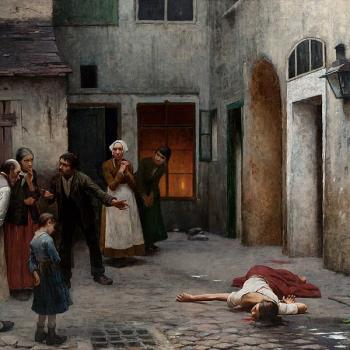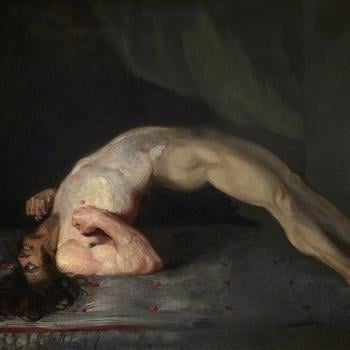Members of the Supreme Court seem to be thinking alike.
Yesterday, they handed down a unanimous decision requiring search warrants before law enforcement can go through cell phones. Today, they handed down another unanimous decision overturning a Massachusetts law that requires protestors at abortion clinics to stand back 35 feet from the clinic. The Court ruled that the 35-foot protest-free zone violates the First Amendment.
I don’t know if this is a harbinger of a court that is reconsidering the long-term narrowing of individual American’s rights under the Bill of Rights or not. Hopefully, it is. And hopefully, we’ll see another ruling in support of First Amendment rights when they hand down their decision on Sebelius vs Hobby Lobby on Monday.
In the meantime, today’s ruling is a hopeful sign.
The most important ruling will be Monday when they hand down their opinion on the Hobby Lobby/HHS Mandate. I hope, for many reasons, but most especially for the sake of my country, that the Court limits the HHS Mandate and allows the First Amendment to work. It will be a tragedy if it doesn’t.
From CBS News:
The Supreme Court unanimously ruled on Thursday that a Massachusetts law setting a 35-foot protest-free zone outside abortion clinics violates the First Amendment.
The court in the past has allowed for buffer zones around facilities like health clinics, but Chief Justice John Roberts noted that the Massachusetts law restricts access to sidewalks and other public space. “Such areas occupy a ‘special position in terms of First Amendment protection’ because of their historic role as sites for discussion and debate,” Roberts wrote.
The government is allowed to limit speech in public spaces, so long as there is a significant interest in doing so, and as long as the limits are narrowly tailored and leave open alternative channels for speech. The Massachusetts law did not meet the latter part of those standards, Roberts wrote.
“The buffer zones serve the Commonwealth’s legitimate interests in maintaining public safety on streets and sidewalks and in preserving access to adjacent reproductive healthcare facilities,” the summary of the ruling says. “At the same time, however, they impose serious burdens on petitioners’ speech, depriving them of their two primary methods of communicating with arriving patients: close, personal conversations and distribution of literature.”
Moreover, Roberts wrote, the state could have enacted other laws that protect abortion clinic patients without restricting freedom of speech to that extent. “The Commonwealth has not shown that it seriously undertook to address the problem with less intrusive tools readily available to it,” the justice wrote.
While the ruling was unanimous, Roberts and the court’s four liberal justices struck down the Massachusetts law on narrow grounds. Justice Antonin Scalia wrote a separate, concurring opinion that Justices Anthony Kennedy and Clarence Thomas signed onto. Justice Samuel Alito also wrote a separate, concurring opinion.
The case was brought forward by Eleanor McCullen, a woman in her mid-70s, and a group of other anti-abortion rights activists who stand outside of clinics to try to dissuade women from getting abortions.











